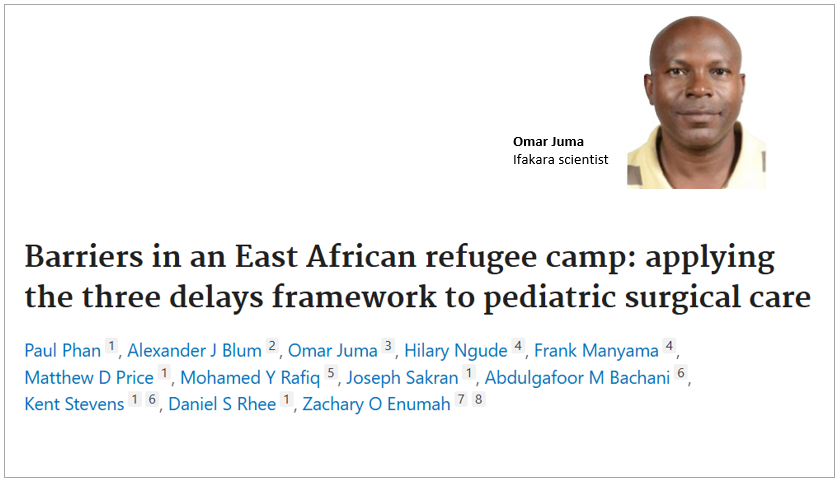
CHILD HEALTH: Life-threatening delays at major refugee camp in western Tanzania

A new study has revealed that children living in the Nyarugusu Refugee Camp in western Tanzania face life-threatening delays in accessing surgical care. Located in the Kigoma Region, Nyarugusu is one of the world’s largest refugee settlements, hosting thousands of families displaced by conflict. But for children needing surgery — whether for burns, injuries, or other medical emergencies — help often comes too late.
The study, published in Pediatric Surgery International recently paints a concerning picture of healthcare access in humanitarian settings. Researchers surveyed 513 parents and guardians of children aged 0–18, documenting 721 surgical concerns. Alarmingly, nearly half of these children (48.1%) experienced delays at one or more stages of their medical journey.
The problem isn’t just hospital capacity
Behind every statistic is a child waiting in pain — and a family unsure where to turn for help. Surgical care can mean the difference between life and death, yet in crisis settings like Nyarugusu, multiple barriers stand in the way. This study shows that the problem isn’t just about hospital capacity — it’s about awareness, access, and equity.
By pinpointing when and why delays occur, researchers hope to spark change:
- Raising awareness among caregivers about when to seek help.
- Improving transport and referral systems to reach care faster.
- Strengthening health services within the camp to respond more effectively.
These steps could save countless young lives and ease the suffering of children whose health needs are often overshadowed by the challenges of displacement.
The three delays explained
Using the well-known “three delays framework,” researchers examined the main stages where children’s care is slowed down:
1. The First Delay — Deciding to Seek Care
This delay was linked to older children, caregivers’ belief that the child was healthy, and limited use of nearby primary health centers. These findings show that awareness and perception strongly influence how quickly families act when their child needs help.
2. The Second Delay — Reaching a Health Facility
Children with burn injuries were especially affected here. Getting to a health facility was harder for them, revealing serious gaps in emergency response and referral systems inside the camp.
3. The Third Delay — Receiving Proper Care
Even after reaching a facility, some children still faced delays in getting treatment. This was more common among Congolese families and those whose caregivers didn’t fully grasp the child’s health status — pointing to systemic and cultural barriers in healthcare delivery.
A call for urgent action
The researchers warn that without immediate improvements, many refugee children risk preventable complications, long-term disability, or even death.
They urge targeted interventions to close these gaps — combining community education, faster referrals, and culturally sensitive care tailored to refugee populations.
“Children in a Tanzanian refugee camp experience unmet surgical needs complicated by multifactorial delays,” the study notes. “Future interventions that reduce these delays are crucial for improving outcomes for refugee children.”
Ifakara’s scientist among contributors
Among the authors was Dr. Omar Juma, a researcher from the Ifakara Health Institute, whose contribution strengthened the study’s local relevance and understanding of Tanzania’s healthcare landscape.
Dr. Juma collaborated with scientists from: Johns Hopkins School of Medicine (USA); Tanzania Red Cross Society; New York University; and Brigham and Women’s Hospital (USA). Their combined effort underscores the power of international collaboration in tackling urgent health challenges affecting vulnerable children.
The bigger picture
The study is more than an academic exercise — it’s a call to action. For children growing up in refugee camps, timely surgical care isn’t a luxury; it’s a lifeline. By understanding the delays and their causes, policymakers, humanitarian agencies, and health partners can work together to ensure that no child suffers simply because help came too late.
Read the publication here.
